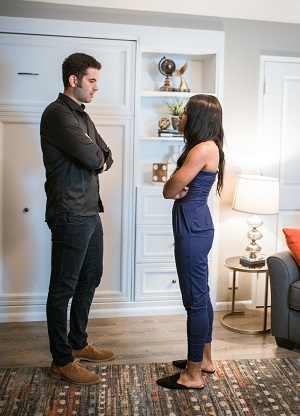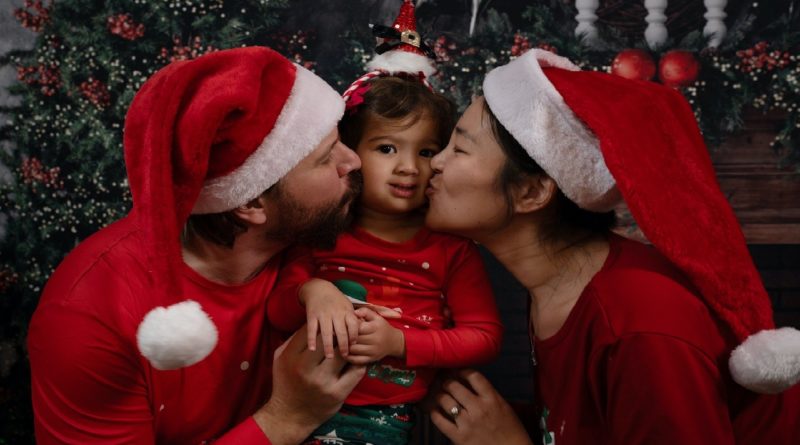How to parent peacefully
When parents separate, they are entering into an unknown world. Ever since their children were born, they have never had to adhere to the timetable of a single parent. In most modern families, tasks would have been divided with one parent doing feed time and the other bed and bath.
As a children lawyer and divorced parent of two, I often get asked questions such as ‘does shared care really work’, ‘does it not cause confusion to the children’, ‘how do they adapt to two homes’ and ‘can it work if we simply do not get on’.
For most, the view has already been formed that peaceful co-parenting only happens in Disney films, in the Gwyneth Paltrow household or the Hamptons. The reality is it can happen and does happen, but it takes determination by both parties to get it right. If you do, the rewards can be life changing. Children grow up feeling they can talk to you both without barriers, can celebrate their love for you both openly and, more importantly, that you can enjoy all of this as a unit, just a different one.
There are many breakups where for a number of reasons, co-parenting is not possible, but for those where there are no welfare concerns and there is a genuine desire to work together to get it right, these tips should help.
It is about the children’s wishes and feelings not the adults’.
The focus should always be on what is right for the child. When parents split, they often put their own positions first. In my initial meetings I often hear the words ‘I must have every weekend’, ‘he can see them every other weekend’ or ‘it has to be full fifty-fifty’. I have to dial back the emotion and remind parents that children do need both of them. They have grown up with both since birth and need both going forward. The parents may have divorced each other but they are not divorced from their children.
My advice is to always have the question of what is right for the children at the forefront of your mind. If, for example, dad asks for an additional day to watch a football match that happens to be on your day, then go with it. If mum wants to attend a girls’ pamper party on a day that falls on dads’ weekend, then go with it. This is putting the children first and also showing them that life is about compromise.
Routine, respect, and planning in advance.
 Children need routine whatever their age. This is even more so when they are living in two households. I often get asked what the right co-parenting routine is. The reality is, there is no right or wrong. Children do not come with a manual. They are all different. A week on, week off routine may work for some children but not others. My own children have a routine which involves them staying with dad Thursday to Monday one week, then Wednesday and Thursday the following week. We did not even try the week on, week off approach as we both knew that this would be too much for our son who prefers shorter blocks. Whilst our arrangement is not exactly fifty-fifty, it is as good as and works.
Children need routine whatever their age. This is even more so when they are living in two households. I often get asked what the right co-parenting routine is. The reality is, there is no right or wrong. Children do not come with a manual. They are all different. A week on, week off routine may work for some children but not others. My own children have a routine which involves them staying with dad Thursday to Monday one week, then Wednesday and Thursday the following week. We did not even try the week on, week off approach as we both knew that this would be too much for our son who prefers shorter blocks. Whilst our arrangement is not exactly fifty-fifty, it is as good as and works.
A good tip is to have a calendar on the fridge door marking mum and dad days. Children can then see when they are next seeing the other parent which takes away any worries or anxiety that they may have.
Holidays will also need to be planned in advance, with both parents giving notice to each other. The best arrangements tend to be those that alternate the holidays each year, so children create memories of different seasons with both parents.
Aim for a business relationship.
Tensions between parents can get high and this is often exacerbated by unhelpful communication. The preponderance of communication apps is dangerous territory for parents in conflict. My advice – see your ex as a business partner akin to a work colleague and this should change the way you communicate with each other.
This will also have the benefit of facilitating how you talk about the other parent to the children as it takes away the emotion.
Don’t create the “divorce kid” environment.
My daughter often says to me that she knows the kids at school whose parents are divorced because they come in loaded up with bags. This comment has never left me, so I have worked with my ex to ensure that our kids are not loaded up when going to school.

With a little planning, this can work. Also, as tough as it may be, try to attend school functions, plays and parents’ evenings together. Attending separately and sitting at opposite sides of the school hall not only reminds children that their family is separated, but also announces it to their school world. It also helps deal with any negative feedback from teachers and if needs be, it helps with enforcement of the same rules in both households.
To summarise, co-parenting is not easy. It takes patience, understanding and resilience. I have been co-parenting now for seven years. We did not get it all right, but we applied the above rules and have now come out of on other side. The greatest irony is that our children are now teenagers and do not want to spend time with either of us – we are just mum and dad, and we are both uncool.








Great advice – I like the idea of treating your ex as a colleague as I’ve struggled to settle on the right tone
As a primary school teacher, whenever possible, I encourage divorced parents to attend school functions together. It really helps kids.
Very helpful article, thanks 😊